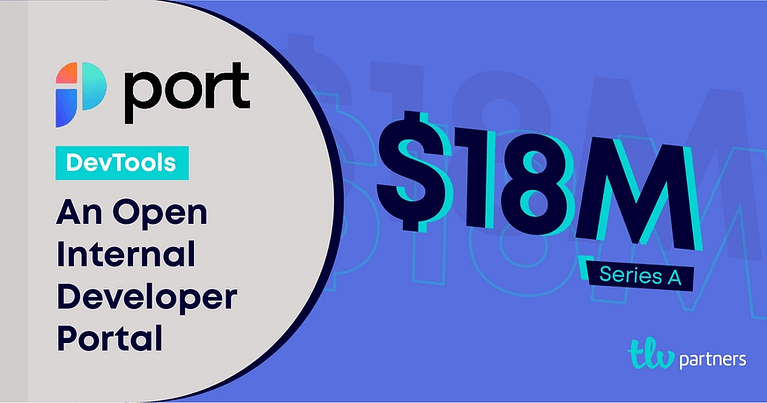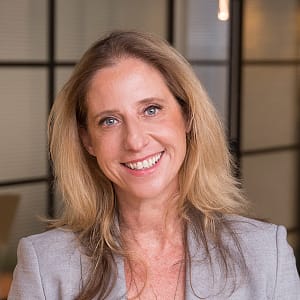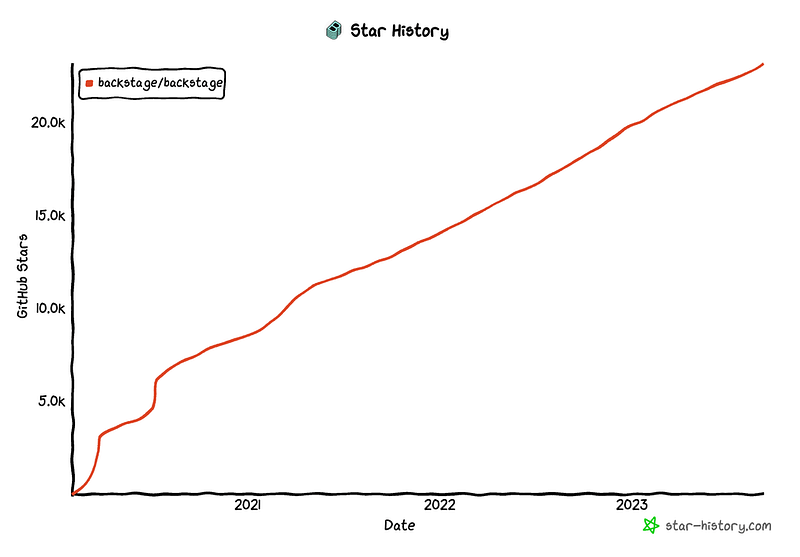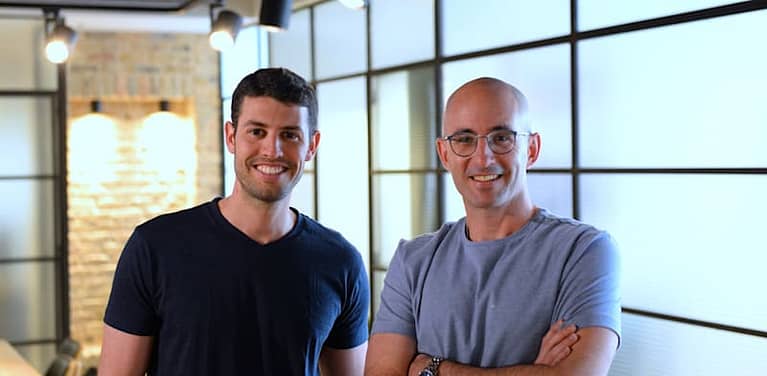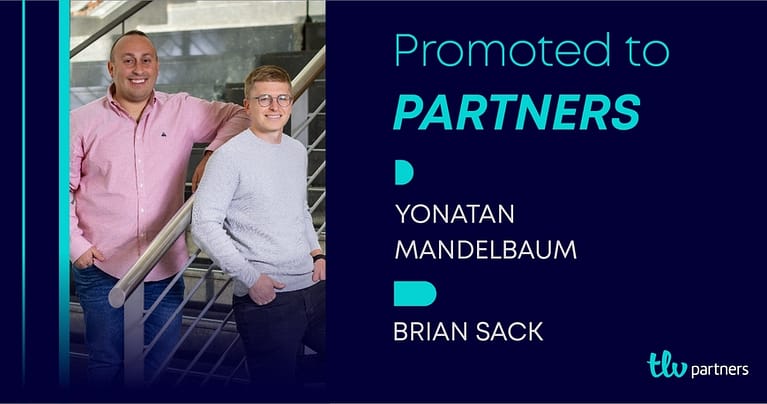Let’s journey back to 2019. By this time, DevOps had secured its place in the mainstream, and agile development had become the industry standard. Yet, even companies like Spotify found themselves challenged by the dynamic nature of their infrastructure. The need for continuous team education on every emerging technology was simply unscalable.
This led to the arrival of the ‘Developer Portal’ concept in 2019, an abstraction layer over everything DevOps, offering developers a simple way to engage with software and its underlying infra. In 2020, Spotify open-sourced Backstage, its take on this concept. This move catalyzed the Developers Portal’s rise as a leading trend in the DevOps ecosystem, serving as an interface on top of platform engineering. Numerous companies attempted to adopt Backstage but realized it was way too difficult to get up and running. It was evident that while the market was in search of a solution, Backstage wasn’t the right match for many.

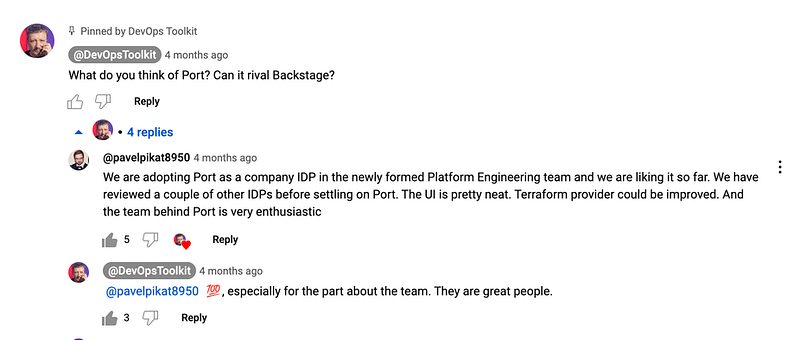
Simultaneously, in the Israeli intelligence unit, a talented team from 8200 Unit, led by Yonatan Boguslavski, was developing its own take on the developer portal concept. However, instead of designing it similar to Backstage’s library-like structure, Yonatan developed a robust low-code builder. It was hugely successful, becoming the go-to standard within the Israeli military tech community.
After his service with the Israeli army in 2021, Yonatan, with a vision for a broader solution, conceived the idea of Port. His prior experience gave him an edge, and it was during this phase that he collaborated with Zohar Einy, a serial entrepreneur with an impressive track record. Their synergy was immediate, and by late 2021, Port was formally established.
Ports’ Rapid Adoption by the Community
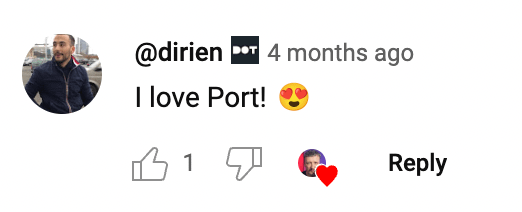
While the product was already in use by select customers in Mid 2022, in late 2022, Port launched its product as a self-service offering. Based on their past experience, the team developed an intuitive yet flexible builder that could pull in any data and support any developer action. This tool allowed DevOps teams to offer services to developers in a matter of days rather than months. Furthermore, Port’s capabilities were extended to automate machine-to-machine services and provide DevOps teams a transparent overview of their infrastructure.
Port was lucky to be surrounded by a passionate community from day one. And soon enough Port opened its product roadmap to the community.
- One early user insisted Port needs to be able to bring any data into the product and “model everything”.. This is how Port’s blueprints were born.
- Other users wrote integrations, all on their own, and got Port to think about everything from kubernetes native software catalogs to CI/CD data in the portal.
- Users started to bring AppSec and incident management data into the portal, as well as many self-service actions that served a range of use cases. Some of this has spurred Port to create the Ocean extensibility framework.
The community loved Port, and soon Port’s popularity was growing rapidly.
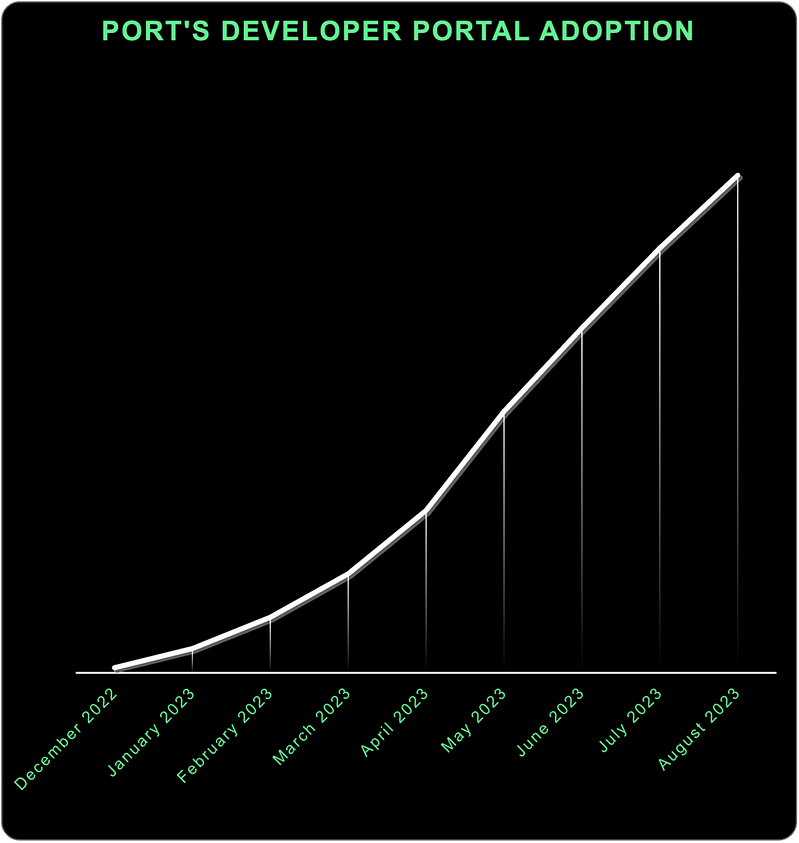

Zooming into mid 2023, Port’s success reached a point where more funding became essential. We began gearing up for a bigger round of funding.
A Personal note
When Zohar rang me late one evening to share the news of signing a term sheet with Liran Grinberg From Team8, I felt an overwhelming sense of accomplishment. The significance of securing a substantial A round in mid-2023, probably the worst year in a decade to raise follow-on funding, cannot be understated. Liran is an exceptional partner for Port and I was glad he chose to join the journey. But my joy was also deeply personal.
I had known Zohar for over 8 years, having first met him during his 8200 service. From our early interactions, his brightness and drive were evident. We have been working together ever since. Zohar was an Engineer-in-Residence at TLV Partners and is the co-founder of Aporia, another TLV Partners portfolio company. Witnessing Zohar’s progression—from a 8200 developer, to key roles in various ventures, and finally CEO of Port—has been genuinely rewarding.
Looking Ahead
Zohar and Yonatan built a great team of engineers and some of Israel’s top go to market professionals. They cultivated a culture where the customer was first and foremost. It became Port’s mark, with everyone including the R&D team actively engaged in customer support.
With the right team, an outstanding product, and the necessary resources, Port is poised for success.
Being part of Port’s evolution has been a privilege.
So here’s to the future: Go get ’em, guys! 🚀🌟
